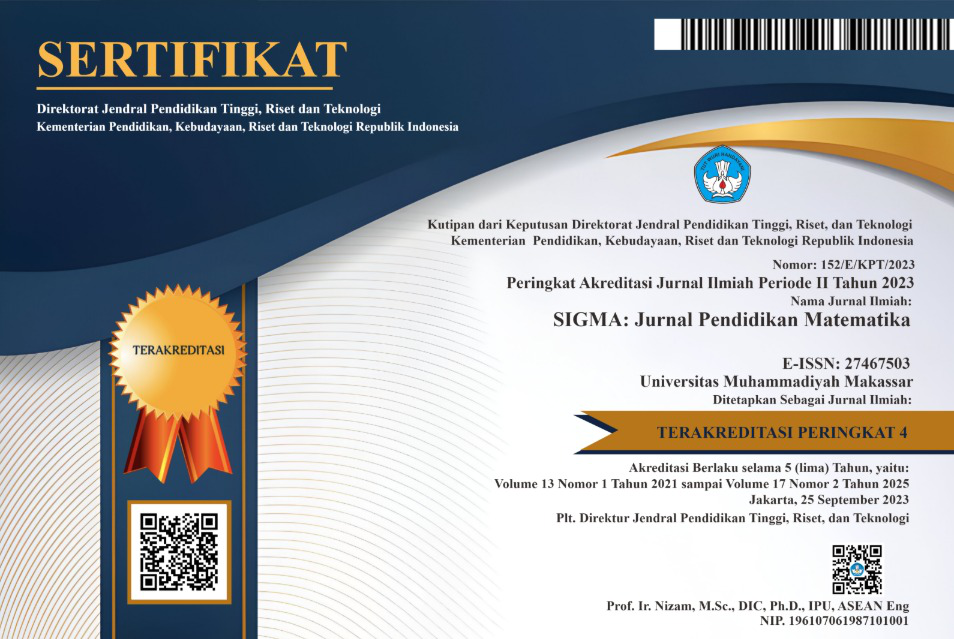APLIKASI TQM DALAM PENGELOLAAN PENDIDIKAN
DOI:
https://doi.org/10.26618/sigma.v1i1.7343Keywords:
Pendidikan, Manajemen, Mutu, Total, Kepuasan PelangganAbstract
Educational system that managed by any institutions should be seen as an obligation given by all of the educational stakeholders in the country. Ofcourse, the people trust must be returned back to the community by providing the best educational services by which all partises could be delighted. In this context, the quality of education that can fully satisfied the stakeholders is a zero defect practical educational system. This perfect educational system could only be established by managing the educational system; input, process, dan output, that is orientated to a quality standard. This aproach is well known as Total Quality Management or simply just TQM. This paper present the discussion on the understanding, background, strength, and the application strategy of TQM into educational management system including its relationship with BOMM (Bantuan Operational Management Mutu or Operational Subsidy for Quality Management).References
Adiviso, Bernardo F (1998): Basic Ideas Behind Total Quality Management,
Colombo Plan Staff College for Technician Eduaction, Manila.
Besterfield, D. H. et.al (1995): Total Quality Management, Prentice Hall
International, New Delhi.
Creech, B (1994): The Five Pillars of TQM, Truman Talley Books, New York.
Crosby, Phillip B (1986): Quality is Free, Mentor Books, New York.
Departemen Pendidikan Nasional (2005): Rencana Strategis, Jakarta.
Editors (1992): Crosby on Quality: “Quality is Free.”, Word Executive’s Digest,
July.
Ellerton, Claire (Ed.) (2001): Managing for Excellence, Dorling Kindersley,
London.
Gaspersz, Vincent (2001): Total Quality Management, Gramedia Pustaka Utama,
Jakarta.
Gintings, Abdorrakhman (2007): Strategi Pengembangan Sekolah Daerah
Terpencil (Makalah Disajikan pada Workshop Pengembangan Sekolah
DaerahTerpencil), Direktorat TK – SD Ditjen Mandikdasmen, Jakarta.
---------- (2008): Aplikasi SIM Dalam Pendidikan, Program Pascasarjana Uhamka,
Jakarta.
---------- (2008): Menggapai Keunggulan (Makalah Disajikan Dalam Diklat
Pengelola PTS Jabar – Banten), Kopertis Wilayah IV, Bandung.
Herman, L. Janice dan Jerry J. Herman (1995): Total Quality Management (TQM)
for Education, Educational Technology, May – June.
Irawan, Handi (2002): 10 Prinsip Kepuasan Pelanggan: Paradigma baru merebut
hati pelanggan untuk memenangkan persaingan, Elex Media Komputindo,
Jakarta.
Linder, Jane C. (2004): Outsourcing for Radical Change: A Bold Approach to
Enterprise Transformation, American Management Association, New York.
Patki, SD (1998): Process of Implementing TQM, Colombo Plan Staff College for
Technician Eduaction, Manila.
Rochaety et. Al. (2005): Sistem Informasi Manajemen Pendidikan, Bumi Aksara,
Jakarta.
Sallis, Edward (2006): Total Quality Management in Education: Manajemen Mutu
Pendidikan (Alih Bahasa oleh Ahmad Ali Riyadi dan Fachrurrozi), IRCiSoD,
Jogjakarta.
Schmidt, W. H. et. al. (1993) : TQ Manager, Jossey Bass Inc., San Francisco.
Stewart, Roger (2003): Handbook of Teamworking: Understanding and Managing
Teams, Infinity Boks, New Delhi.
Downloads
Published
Issue
Section
License
With the receipt of the article by the SIGMA: Jurnal Pendidikan Matematika Editorial Board and the decision to be published, then the copyright regarding the article will be diverted to SIGMA: Jurnal Pendidikan Matematika.
Universitas Muhammadiyah Makassar as the publisher of SIGMA: Jurnal Pendidikan Matematika hold the copyright regarding all the published articles in this journal.Universitas Muhammadiyah Makassar has the right to multiply and distribute the article and every author is not allowed to publish the same article that was published in this journal.
The manuscript authentic and copyright statement submission can be downloaded ON THIS FORM.





